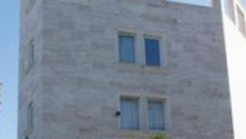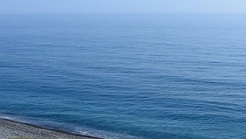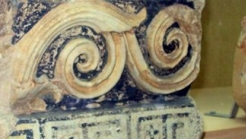

Greece
In 1927, the first Delphi Celebrations were organized by Aggelos and Eva Sikelianou. The poet visualized an international centre, where a «league of select few» will meet, just as in ancient times, in order to ease the controversies between nations and to ensure global and permanent peace (Delphic Idea).
The first discussions on the creation of a cultural centre on Delphi, began immediately after the end of WWI.
In 1927, the first Delphi Celebrations were organized by Aggelos and Eva Sikelianou. The poet visualized an international centre, where a «league of select few» will meet, just as in ancient times, in order to ease the controversies between nations and to ensure global and permanent peace (Delphic Idea).
After WWII, the matter was rediscussed, mostly by people of arts and literature. In London, the Poets, Essayists and Novelists International Association (PEN International), after a proposition of the Greek poet – and later politician – Giannis Koutsocheras, proposed the creation of an international cultural centre in Delphi.
On March 1957, Greece officially submitted a plan to the European Council for the creation of a Delphi Centre. On September 1962, the Delphi Centre was officialy put under the aegis of the European Council, following a decision of the committee of the Ministers of External Affairs of the member countries. The Greek government accepted the responsibility of providing a space for the construction of the buildings, where the Centre would be housed.
The foundations for the Centre officially began on March 28 1966, and te construction works for the building complex began.
In 1977, by law of the Greek Parliament, the European Cultural Centre of Delphi was formed, as a legal entity, under the supervision of the Ministry of Culture and under the aegis of the European Council.
According to its founding law, its aim is to “serve international cultural interests” and “develop common cultural principles that will unite the peoples of Europe” through the “publication of studies on European culture, the organization of cultural assemblies and other artistic activities…”
Activities and educational programmes
The INTERNATIONAL MEETINGS ON ANCIENT GREEK DRAMA began in 1984. Its aim was to become the place where the theoreticians and the researchers of ancient Greek drama could meet with the theatre artists and creators. A meeting point where they could exchange ideas. Since 1995 the meetings have been organized biennially.
The programme of the Meetings includes ancient Greek drama performances (1985-2004: Ancient Stadium of Delphi), symposia, theatrical workshops, exhibitions and other parallel artistic events.
From 2005 onwards the performances have been staged at the open-air theatre FRYNIHOS of the European Cultural Centre of Delphi.
Collaborations with international festivals, theatrical organizations and artistic institutions
• International Committee of Theatre Olympics
• Istanbul Foundation for Culture and Arts-International Istanbul Theatre Festival (Turkey),
• International Institute of Mediterranean Theatre (Spain)
• Shizuoka Performing Arts Center (Japan)
• The Royal National Theatre Studio (United Kingdom)
• Watermill Foundation (USA)
• Taganka Theatre (Russia)
• Moscow Theatre “School of Dramatic Art Anatoli Vasiliev” (Russia)
• Bureau of Culture of the Municipality of Beijing
• Central Academy of Drama (China)
• Théâtre National de Luxembourg
• Ruhrfestpiele Recklinghausen Europäisches Festival
• Meyerhold Centre Moscow
• Cyprus Theatre Organisation
Co-operations from Greece:
• National Theatre of Greece
• National Theatre of Northern Greece
• Technis Theatre
• ATTIS Theatre
• Various Municipal Theatres
The meeting of young artists was organized for the first time as a pilot programme in 2007, during the XIII International Meeting on Ancient Drama aiming at:
· Acquainting young artists and students with the methods of work of the masters of international theatre.
· Providing the opportunity to young artistic groups to present their work on ancient drama and demonstrating the modern reception of ancient drama in the various forms of art.
The Meeting of Young Artists is organized annually.
Fine arts
Symposia, exhibitions, seminars as well as programmes of accommodation and work of artists in Delphi.
In 1994 the Fine Arts programme is redefined aiming at the creation of a Park of Sculpture and a permanent collection of Works of Contemporary Art.
Educational programmes
Ancient Greek language and civilization seminars
The Seminars on Ancient Greek Language and Civilization started in 1995 aiming at the training of secondary school teachers of the European countries in Ancient Greek language
The Seminars are organized every year with the participation of 60 per average teachers each time from different countries. Their trainers are University professors of classical studies and of specialised research centres from Greece and the respective country
The educational programme, two weeks duration, includes teaching of ancient Greek language through computers for the study and research of philosophical texts and analysis of arguments
Data bank
Apart from these seminars the E.C.C.D. proceeds in collecting data for the formation of a catalogue that will include the following:
All Secondary School teachers who have the license to teach the ancient Greek language
All school books on the ancient Greek language in all the countries they are taught
Participating countries:
1995 Denmark
1996 Spain
1997 Belgium (Wallons)
1998 Belgium (Flanders)
1999 Austria
2000 Russia
2001 The Netherlands
2002 Germany (Bavaria)
2003 Ireland
2004 France
2005 Sweden – Norway – Iceland
2006 Cyprus
2007 UK
2008 Italy
2009 Poland
2010 Argentina
2011 Brazil
2012 Mexico
PanHellenic Students` Debate Competition
The Students’ Panhellenic Reasoning Competition are organised jointly with the Ministry of Education, Lifelong Learning and Religious Affairs and aim at the promotion of critical thought among young people and the development of their skills in public speaking and arguments. The Competition was organized for the first time in 2001 and has been held annually ever since.
The competition has a defined set of rules, and is aimed towards the students of the third class of the private and public colleges of Greece.
Annual European students’ Competition in Ancient Greek Language and Literature
Symposiums
Extremely important are the symposiums, seminars with a wide spectrum of themes (Music, musicology, dance, cinema, philosophy, architecture, environment, archaeology, history) and the anniversarial festivities.
Greece-India Meeting (1984)
Musical Workshop by Ianis Xenakis (1985)
Music and Musicology Meetings (1985, 1986, 1989)
Archaeological Symposium “Hellenism in the East” (1986)
Symposium of Byzantine studies “Constantine VII the Porfirogenetos” (1985)
Byzantium in Europe (1986)
Seminars of Philosophy on Aristotle (1995 -2004)
Symposium “Russian Avant-Garde, 1910-1930: An unfulfilled plan” (1996),
International Symposium: The contribution of the Bavarians in the building of the Hellenic state (2000)
Year of SOCRATES (2001)
International Meeting APOLLO (2003)
Year of PERICLES (2005)
CULTURAL AMPHICTYONY (2006)
CULTURE AND ENVIRONMENT (2008)
ETC.
PROGRAM FOR THE RECONSTRUCTION OF THE ANCIENT HYDRAULIS
The research programme for the restoration of the Dion Hydraulis started in 1995 and was completed in 1999.
Leading the research team was Professor of Musicology at the Ionian University Marios Mavroeidis and later (after his death in 1997) musicologist Chr. Stroux.
The programme was supervised by Vasilis Karasmanis, professor of Ancient Philosophy at the National Technical University of Athens and Director of the Centre at the time.
Main associates:
Panos Vlangopoulos, musicologist
Giorgos Paraschos, constructor of instruments.
The research team cooperated with Professor of Archaeology of the University of Thessaloniki Dimitris Pantermalis and his associatesd archaeologists, namely the team that discovered in 1992 in Dion the upper part of the Hydraulis dated back to the 1st cent. B.C.
In order to reconstruct the hydraulis, all ancient sources mentioning the instrument were studied in detail, research was conducted into ancient Greek musical scales, and the use and processing methods of various materials in antiquity (metal, wood, leather, welding, rivets, screws, etc.) were investigated. As for the pipes, it was the archaeological find itself that provided the clues.
The first presentation of the Hydraulis was held in Japan with the occasion of the anniversary of 100 Years of Diplomatic Relations between Greece and Japan. Since then, many countries have hosted the instrument.
The foundation and the activities of the European Cultural Centre of Delphi, are connected to the cultural and humanitarian values that Delphi stand for, which remain evergreen nowadays, on the brink of the third millennia.


The Folkloral museum of Corinth was founded in 1976, in order to locate, maintain and exhibit folkloral material. The extended collections contain women’s and men’s outfits from many parts of Greece, as well as other handicrafts.


The beach of Agia Roumeli with the white pebbles expands on the edge of the village which goes by the same name, on the exit of the Canyon of Samaria.-On the other hand, if you are looking for something more isolated, follow the E4 path east for 30 minutes up until you reach Agios Pavlos.


The Polygyros Archaeological Museum houses exhibits from all over Chalkidiki.
1039 Ε 6061 01515 00